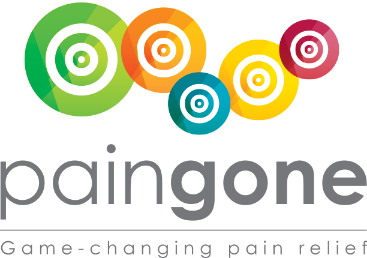
Jun 29, 2021
Paingone
TPNE Reduces Pain and Apprehension in Chronic Pain Sufferers
TPNE, or Therapeutic Pain Neuroscience Education, is a fancy term for patient education about chronic pain and coping with it. A recent issue of Pain Practice outlined the results of a study headed by Marnin Joseph Romm, MSc, BSc at the University of Miami. The results revealed improved pain outcomes for those suffering from chronic musculoskeletal pain who regularly participated in group TPNE sessions.
The results indicated that some of the most common problems for patients with chronic pain – fear of pain and fear of movement – were reduced, leading to improvements in participants’ responses to pain. TPNE was shown to be most effective in a group setting where multiple patients suffering from chronic pain participated.
TPNE’s goal is to educate patients about the source of their pain and how to reframe their perceptions of pain. TPNE teaches patients that experiencing chronic pain doesn’t correlate to tissue damage or injury but is often the result of an overly sensitized nervous system. Separating fear of injury from the experience of pain improves many patients’ response to pain and allays fears of future injury.
According to Romm, “Subjects learn from each other, and from seeing others improve. I also think people in a group are able to be extremely empathetic with other chronic pain patients, and in addition, group cohesion plays an important role in the group dynamic process. Strong group cohesion has been proven to be one of the most important entities to play a significant role in pain outcomes following group-based intervention.”
Could a Brain Implant Relieve Pain in Humans?
New York University’s Grossman School of Medicine is currently using experimental brain implants to alleviate pain in lab rats, hoping the same technology could eventually bring relief to millions of people suffering from chronic and acute pain. According to the study, the computerized implant could also treat disorders such as depression, panic attacks, and anxiety.
“Our findings show that this implant offers an effective strategy for pain therapy, even in cases where symptoms are traditionally difficult to pinpoint or manage,” explained senior study author Jing Wang, MD, an Associate Professor of Anesthesiology at NYU Langone Health.
The device, called a closed-loop brain-machine interface, detects activity in the area of the brain that handles pain processing. A computer synced to the device then triggers therapeutic stimulation of the brain’s prefrontal cortex, easing the sensation of pain. The brain implant effectively detects pain 80% of the time and is only activated when pain is apparent. Researchers stress that this reduces the risk of overuse or addiction.
The therapy is still in the early research stages and will need to be modified for practical human trials. Still, the results are promising for those suffering from chronic pain who are at risk for opioid misuse and those who need long-term pain relief who haven’t responded well to other therapies. You can read more about the study in the Nature Biomedical Engineering Journal.
Support Group Formed for Veterans and Active Military Coping with Chronic Pain
The U.S. Pain Foundation has announced a virtual support group for active service members and veterans suffering from chronic pain. The U.S. Pain Foundation, a non-profit organization providing information and resources for those in pain, established the national support group to connect military members with each other and provide education.
According to Gwenn Herman, LCSW, DCSW, “Veterans are 40 percent more likely to experience chronic pain than civilians. In addition, they face high rates of post-traumatic stress disorder. Veterans and active military members need and deserve specialized support that recognizes the unique challenges they face.”
The online group is led by a Coast Guard veteran who had to end her military career after medical conditions including trigeminal neuralgia and thyroid cancer resulted in chronic pain. The group meets online the first Thursday each month from 8:00 to 9:30 Eastern Time. You can register and learn more at Veteran Support Group.
Patient Expectations Impact Pain Levels After Surgery
Anesthesiology has published a study indicating that patients who fear or expect increased pain following surgery are more likely to suffer from lingering pain. Three months after surgery, patients with poor expectations were more than twice as likely to report persistent pain. In many cases, lingering post-operative pain can lead to chronic pain that is difficult to treat.

The reasons behind the link between patient expectations and resulting pain are still unclear and require further study. Researchers hypothesize it could result from several issues, including altering how the brain processes pain and an unwillingness of certain patients to participate in post-operative therapies properly.
Stanford University’s Guide to Chronic Pain Management Available Online for Free
The Stanford Division and Pain Medicine, in collaboration with the American Chronic Pain Association, has released the 2021 edition of the ACPA-Stanford Resource Guide to Chronic Pain Management. First published in 2010, the guide is a free resource for health professionals and those suffering from chronic pain.
The guide includes current information on various approaches to pain management provided by experts across a variety of medical and health care fields. Updated sections include a focus on pediatric pain, pelvic pain, pregnancy pain, and more. The guide has also been improved with a more inclusive approach and easy-to-understand infographics.
This Week’s Pain Trivia:
Opioid misuse occurs in approximately 25% of individuals suffering from chronic pain, with 17,000 deaths from opioid overdose every year. Alternative methods of pain relief are gaining ground in response to the opioid crisis and its potential effect on chronic pain.
Is Paingone helping your patients and your practice?
Tell us your success story.
A robust retail strategy is essential to growing your practice.
You only have so many hours a week available for appointments. The fastest way to increase your bottom line is to incorporate profitable products that generate repeat business and build your reputation as a medical professional. That’s where Paingone comes in.
Contact us below to learn more about our products, wholesale pricing and how Paingone can benefit your practice.

